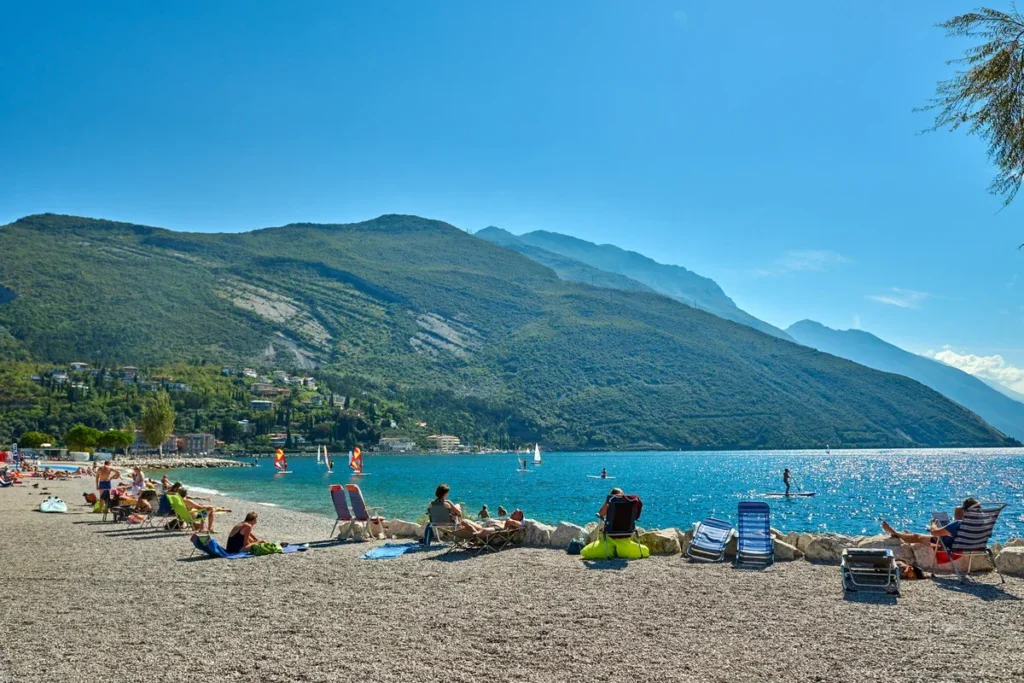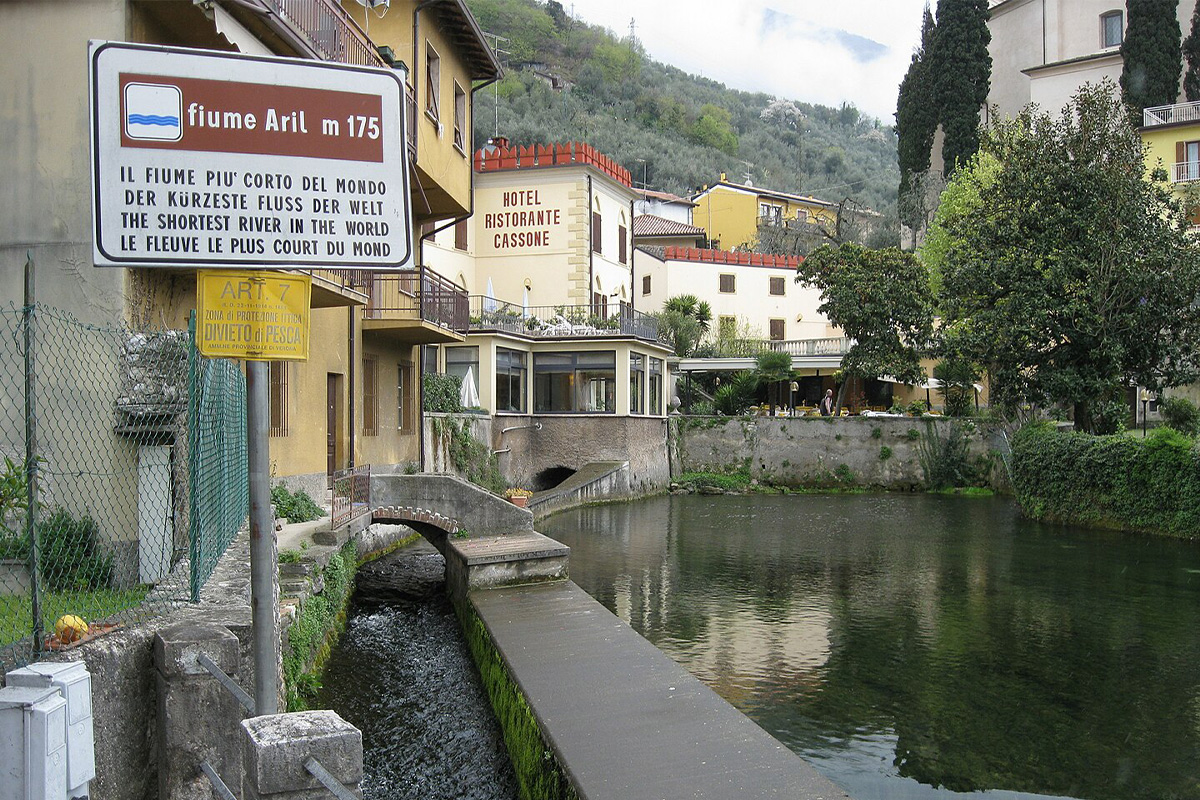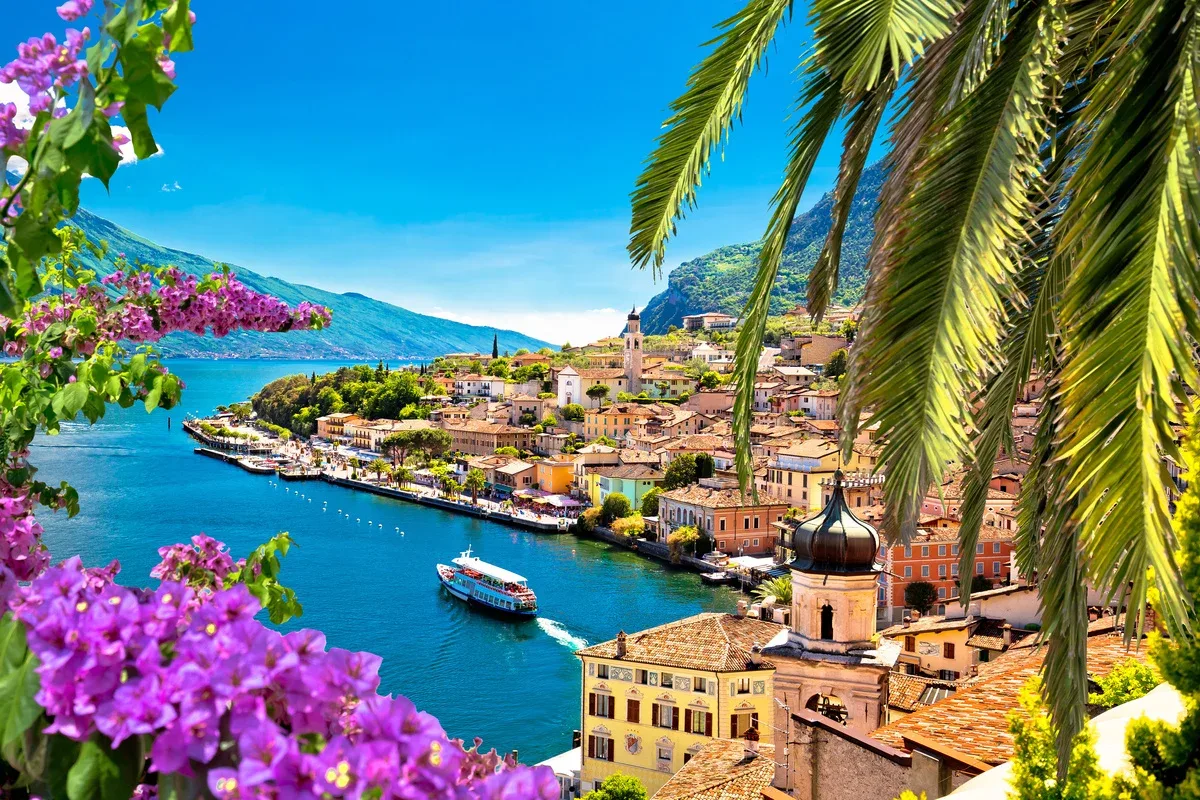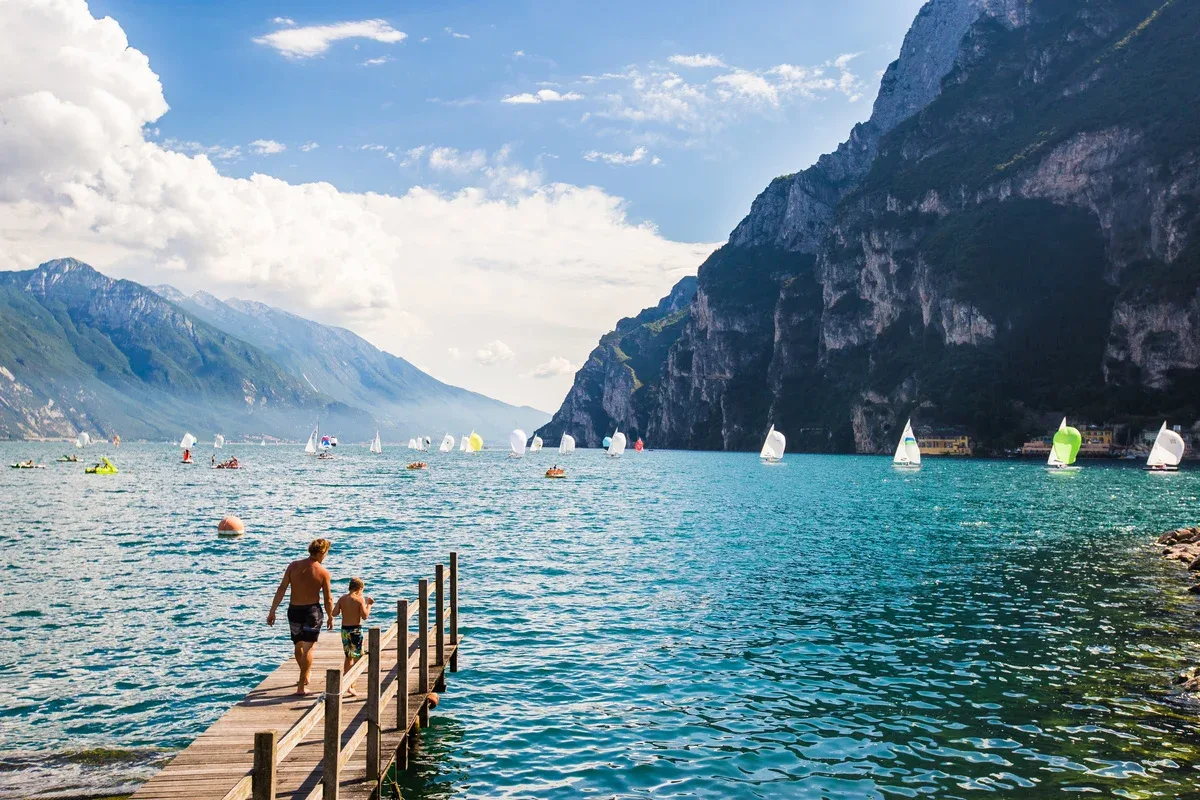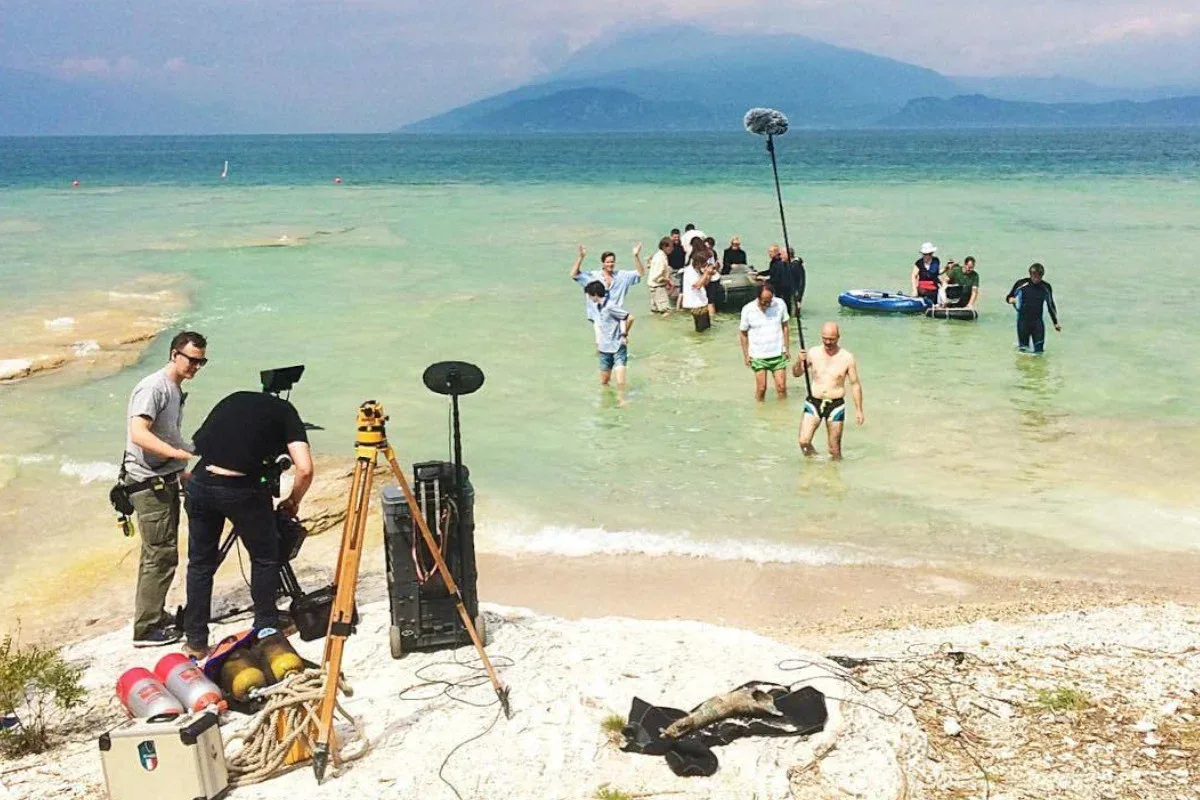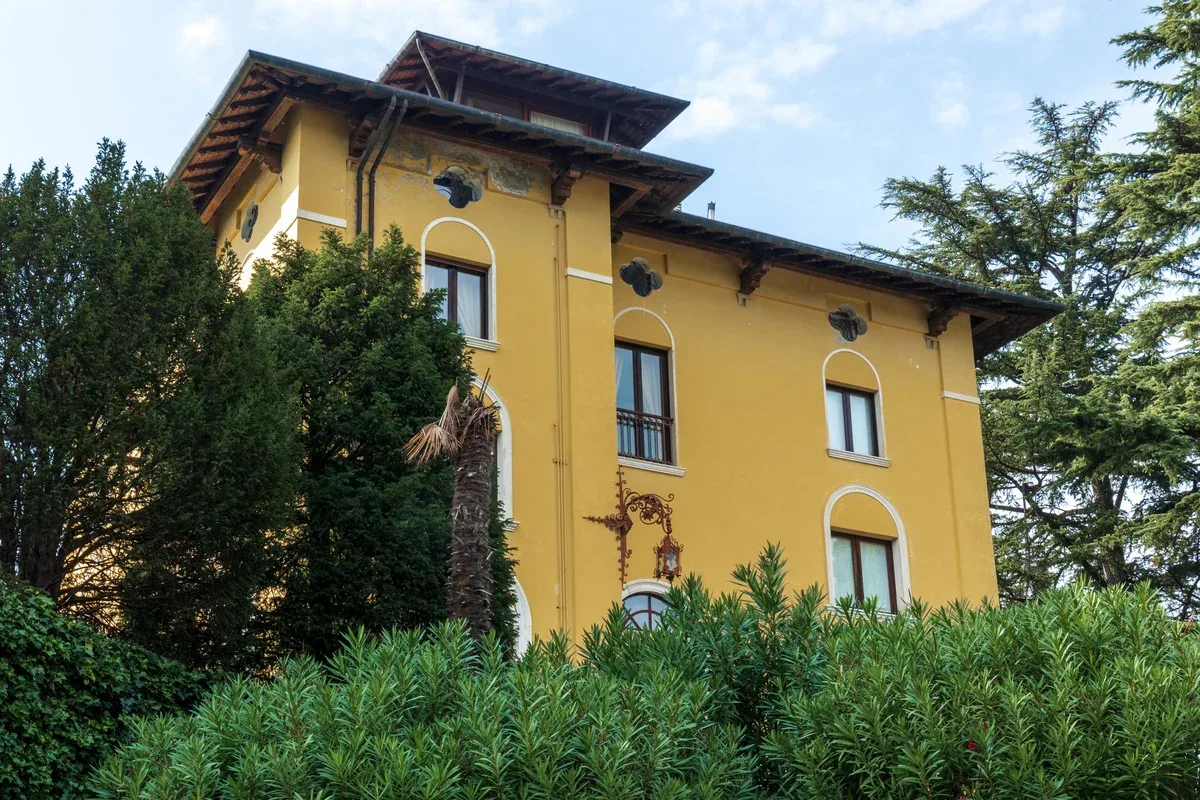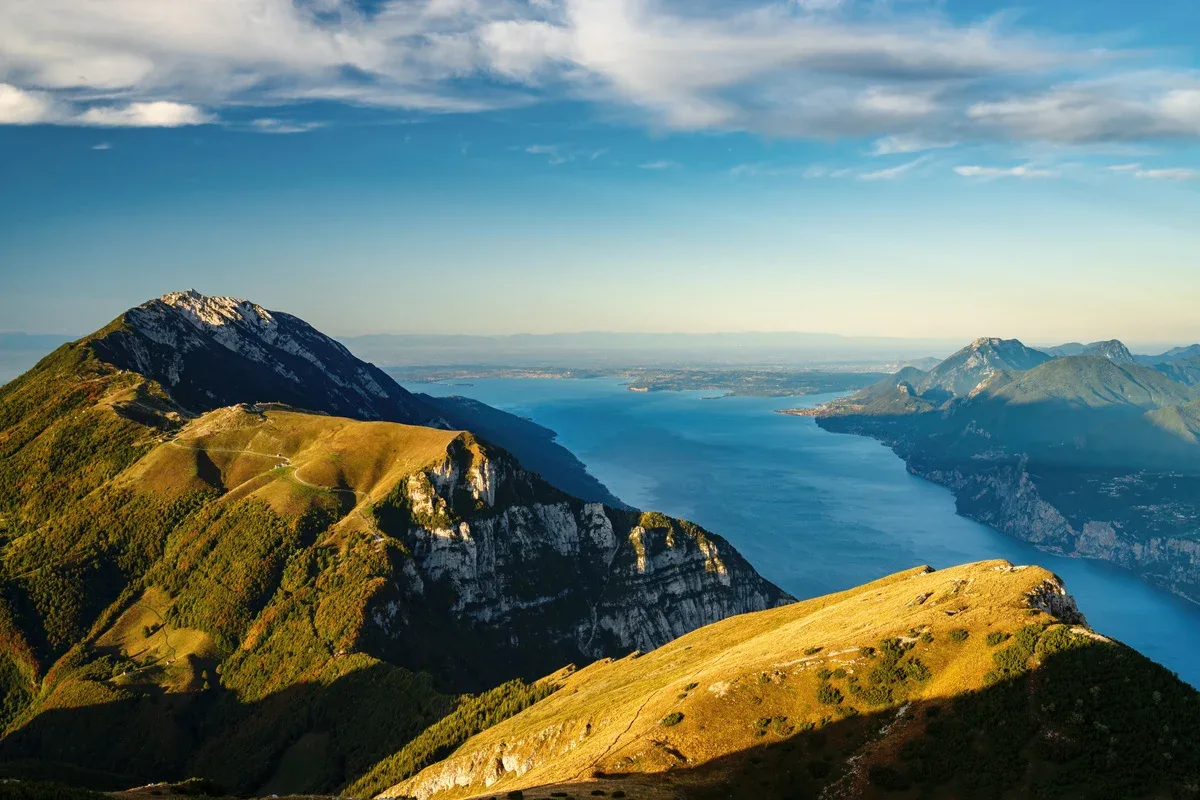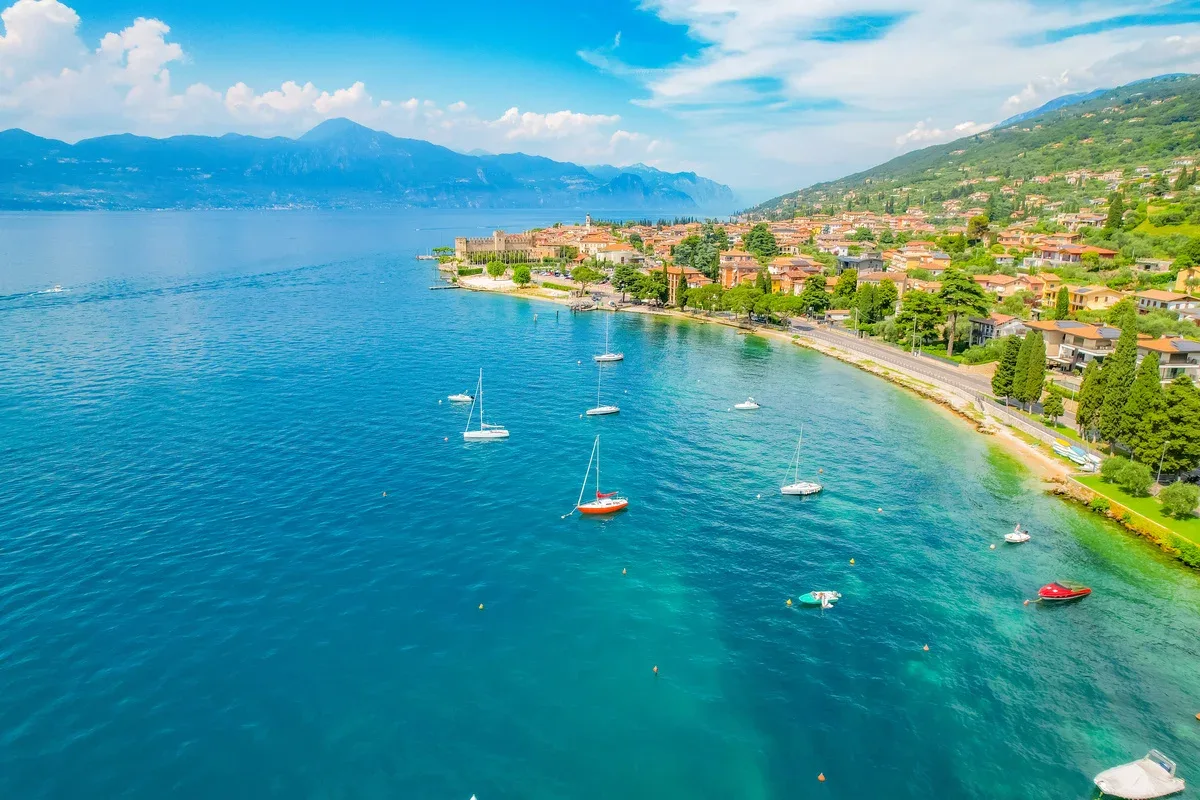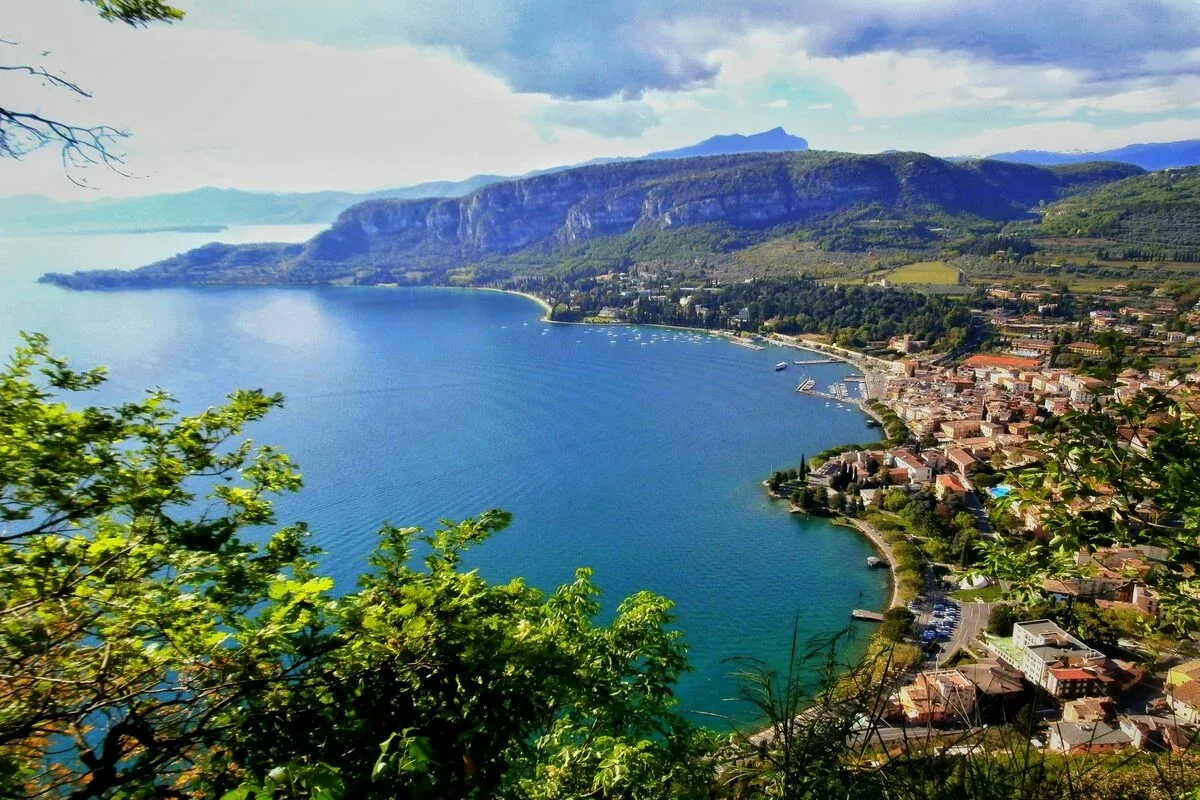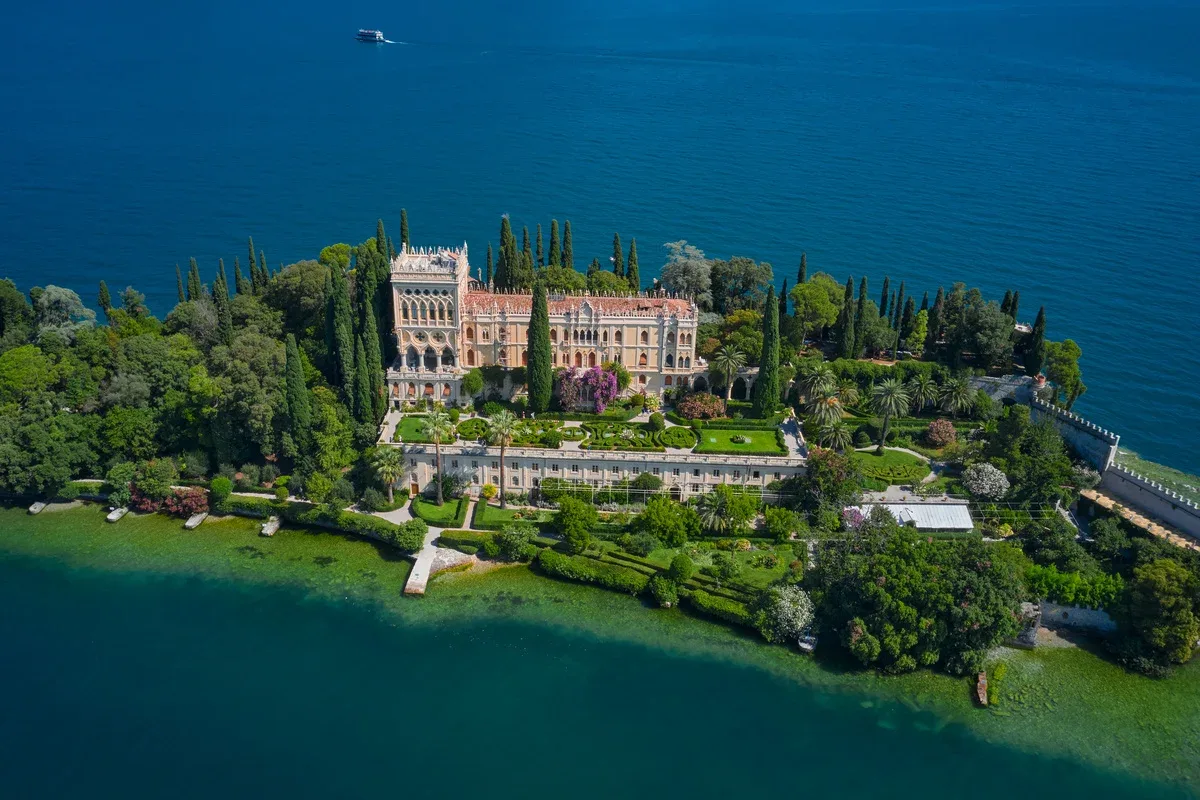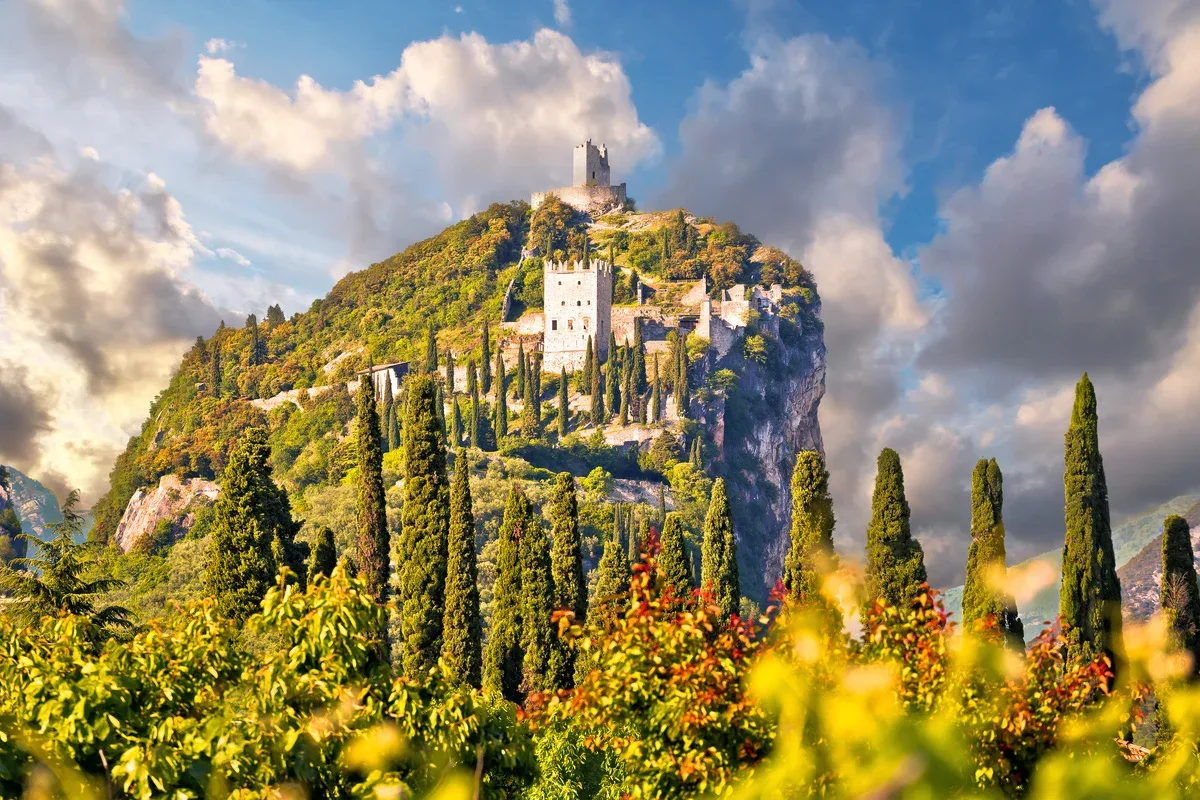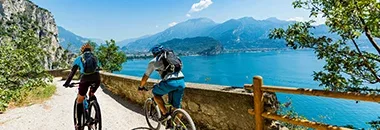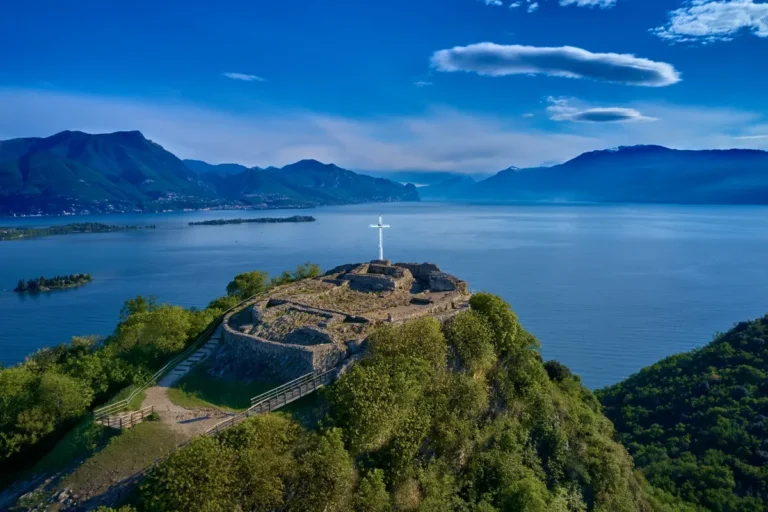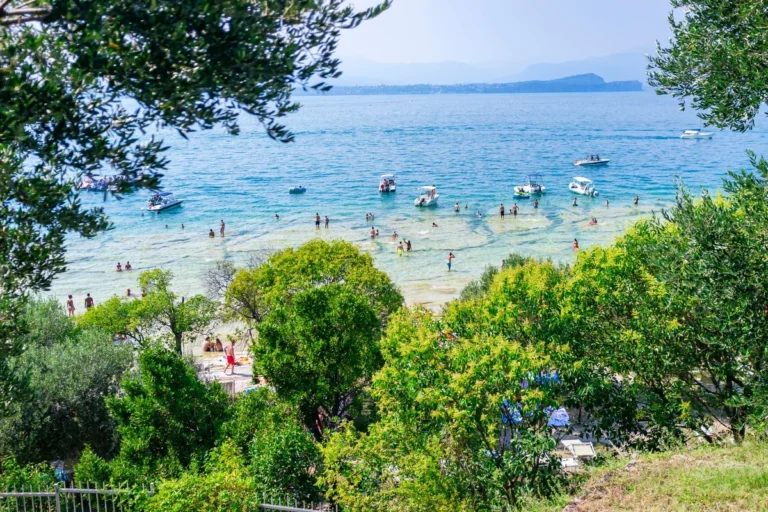Lake Garda, Italy’s largest and most stunning lake, is more than just a popular destination for tourists. It’s a place steeped in history, legend, and evolving identities, reflected in its dual names: Benacus and Garda. While most people today refer to it simply as Lake Garda, its ancient name, Benacus, has deep roots in the area’s cultural and historical heritage. In this article, we’ll explore the fascinating origins and stories behind these two names and the historical tapestry they reveal about the lake and its surrounding region.
Although “Lake Garda” is the most commonly used name, the legacy of “Benacus” lives on in various ways. You’ll find hotels, restaurants, and even local businesses proudly displaying the name Benaco, a nod to the lake’s rich history and cultural heritage. This dual identity is not only a testament to the region’s layered past but also a reminder of the many civilizations that have shaped its shores.
Benaco is more than just an old name; it’s a symbol of the lake’s ancient spirit and enduring allure. From Roman gods to medieval fortresses, the names Benacus and Garda encapsulate the lake’s dynamic history — a tale of transformation that has shaped the identity of this breathtaking Italian masterpiece.
Benacus: A Name from Ancient Times
The name “Benacus” dates back to Roman times, but its origins are even older, likely stemming from the Celtic word bennacus, which translates to “horned” or “many promontories”. This etymology paints a vivid picture of Lake Garda’s jagged shoreline, dotted with numerous peninsulas and inlets. The Romans adopted this Celtic term and Latinized it to “Benacus,” which became the official name during the Roman colonization of the Veneto region around the first century B.C.
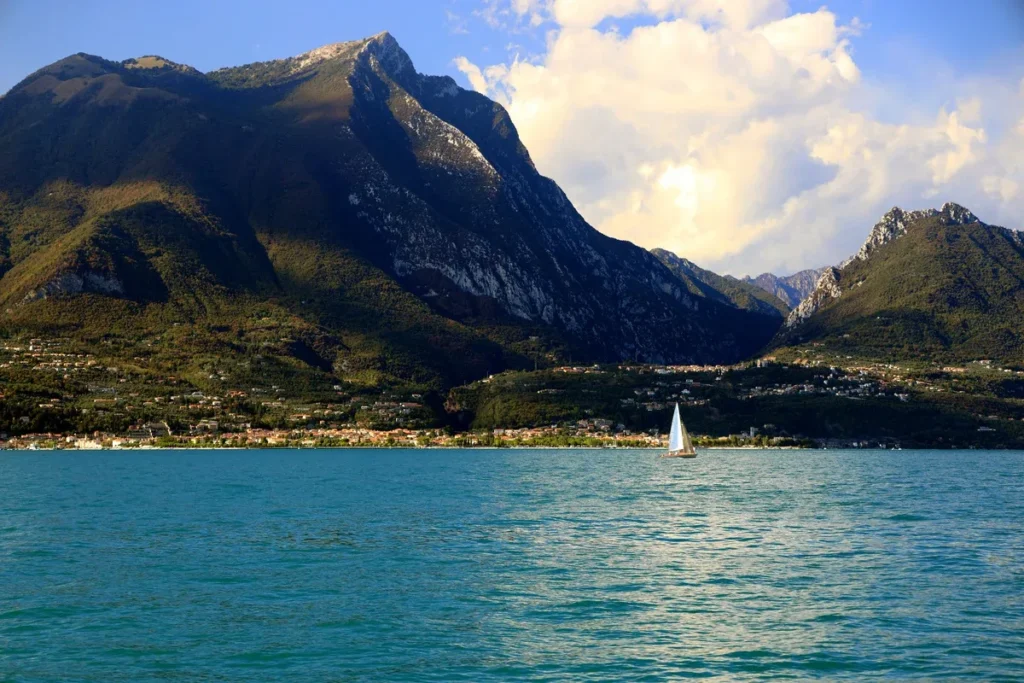
Benacus was a symbol deeply embedded in the region’s mythology. The ancient Romans even personified the lake as the god Benacus, sometimes equating him with Neptune, the god of the sea. This divine association emphasized the lake’s significance and its powerful, almost mystical presence in the lives of those who lived along its shores.
Lake Benacus’ fame wasn’t confined to local legends; it also left its mark on some of history’s most renowned literary works. The Roman poet Virgil, in his famous work “Georgics“, described the lake with its majestic waves that mimic the sea:
“Or shall I recall the seas that lap her shores? / Or her vast lakes? You, Larius most glorious, and you, / Benacus, swelling with the waves and roar of the sea.”
These lines illustrate how the Romans saw Benacus as more than a mere lake: it was a force of nature, almost oceanic in its grandeur.
Later, during the Renaissance, the name Benacus was revived by humanists and poets who celebrated the lake’s beauty. Notably, Pietro Bembo and Giorgio Jodoco Bergano, both wrote Latin poems titled “Benacus” in the early 16th century, paying homage to the lake’s enduring splendor.
Even Dante Alighieri, the great Italian poet, immortalized the lake in his “Divine Comedy” where he mentions Benacus twice in the 20th canto of the Inferno:
“In lovely Italy, there lies a lake, / at the foot of the Alps that shut in Germany / above Tyrol, and it is named Benaco.”
The Emergence of Garda: A Name of Guard and Observation
While the name Benacus carried on through literature, another name slowly began to take prominence: Garda. This name, rooted in the Germanic term warda, meaning “place of guard” or “observation,” reflects a different chapter of the lake’s history — the period of Lombardic and Germanic influence during the early Middle Ages.
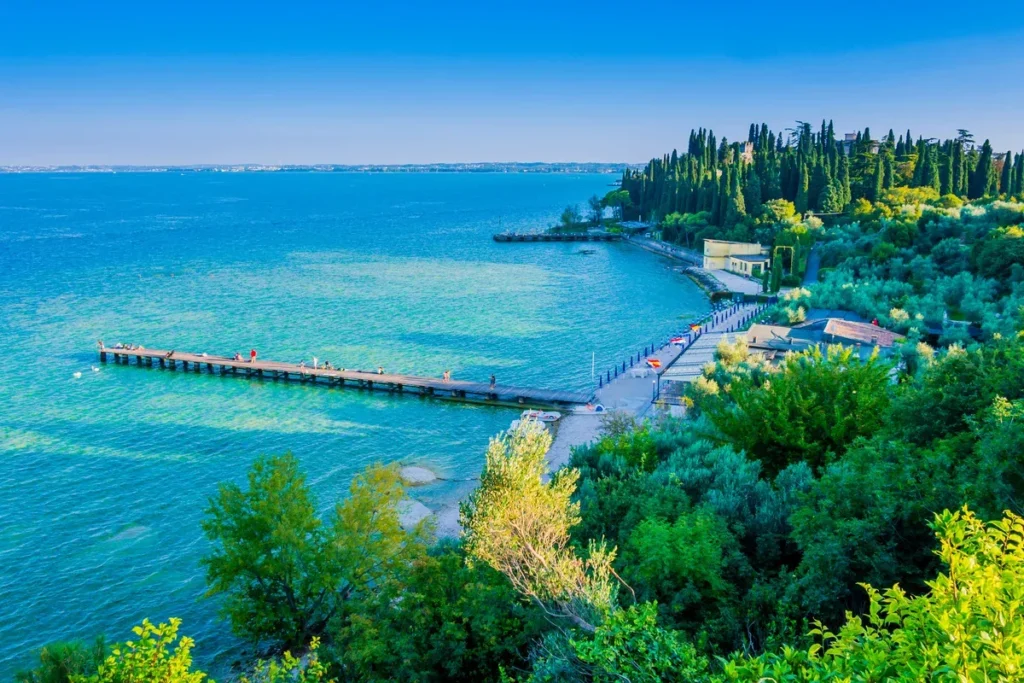
From the 6th to the 8th century, the Lombards, a Germanic tribe, dominated the area and established fortified sites for military observation. The name Garda originally referred to the town of Garda on the eastern shore, which served as a strategic lookout point. Over time, this toponym expanded to encompass the entire lake, gradually supplanting the ancient name Benacus.
The spread of the name Garda is also evident in other local place names like Gardone Riviera, Gàrdola, Gardoncino, Gardoni, and Guàrdola, each reflecting the Germanic legacy embedded in the landscape. A document from 712 A.D., during the reign of Lombard King Liutprand, is one of the earliest recorded uses of the name Garda, marking the beginning of its widespread adoption.
The transition from Benacus to Garda wasn’t just a simple change in nomenclature; it represented a cultural shift. Benacus symbolized the lake’s ancient roots and its connection to the Celts and Romans. In contrast, Garda reflected the new Germanic influences and the strategic military significance the area held during the Lombard reign.
Interestingly, the Italian pronunciation of “Benaco” (Benàco) stays true to its Latin origins, with the accent on the second syllable. However, locals on the Verona side of the lake often pronounce it with the accent on the first syllable (Bènaco), showing how the lake’s name continues to adapt and change even within the community.
The Legend of Benaco and the Birth of Garda
Beyond the historical and linguistic journey, the lake’s names are also shrouded in legend. One popular tale speaks of Benaco, the son of Neptune, who wandered from the sea to find a new home. He met the beautiful nymph Engadina on Mount Baldo, and the two fell in love.
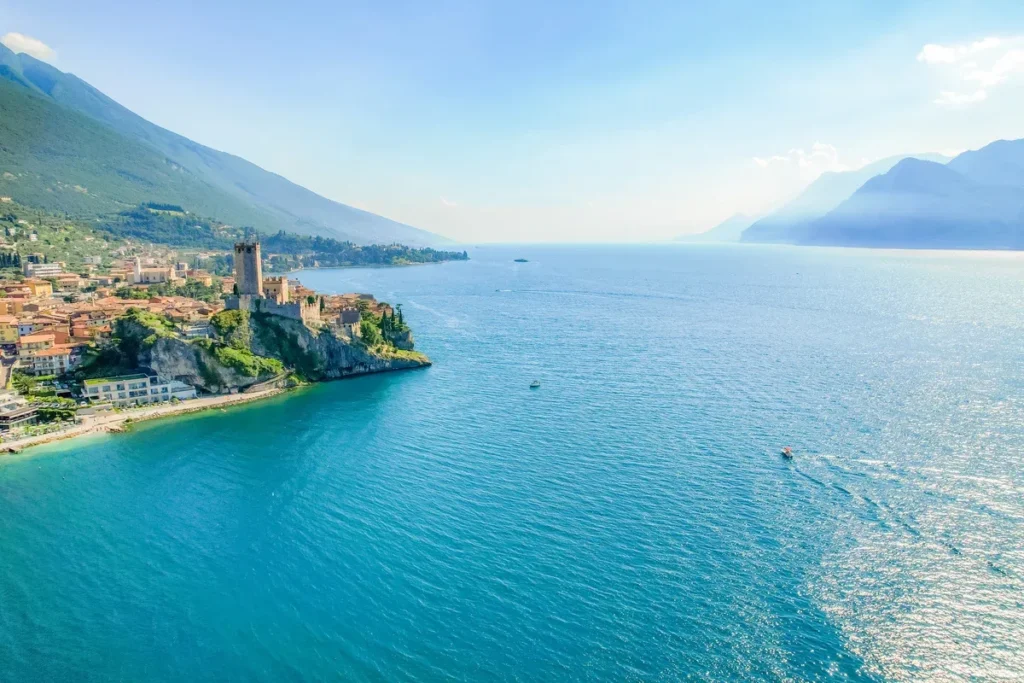
Engadina, however, refused to leave her small mountain lake. To win her heart, Benaco promised her a larger and more beautiful lake. He struck the earth with his trident, causing a massive flood that created the vast Lake Garda. Engadina, enchanted by this gift, dived into the waters, dyeing them the vibrant blue of her hair. They had a son named Garda, and from him, the lake took its modern name.
While this story may be mythical, it perfectly encapsulates the magical allure of Lake Garda. The legends, much like the names, have been passed down through generations, enriching the cultural landscape of the area.












